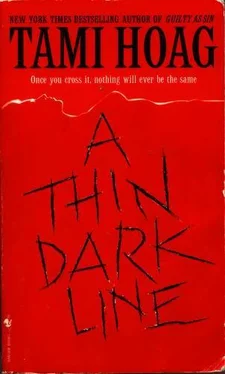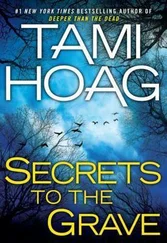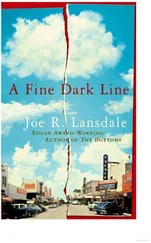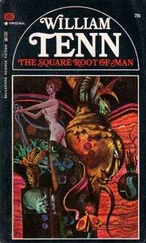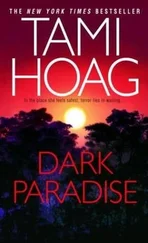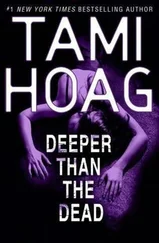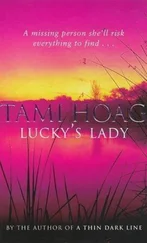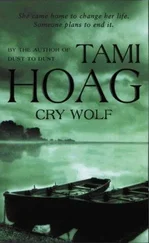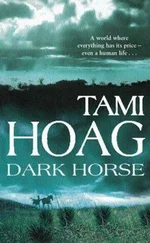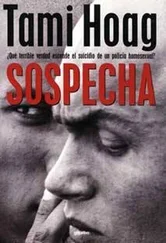"I need an answer, Detective."
"It's irrelevant to the present case."
"Prior bad acts inadmissible on the ground they may taint the opinion of the court? Bull. More often than not they establish a pattern of behavior," Annie argued. "Besides, we're not in court; we're in the real world. I have to know who I'm dealing with, Fourcade, and I already told you, I'm not long on trust at the moment."
"Trust is of no use in an investigation," he said, moving between stove, refrigerator, and butcher block. He set an assortment of vegetables on the chopping block and selected a knife of frightening proportions.
"It is with regards to partners," Annie insisted. "Did you plant that ring in Renard's desk?"
He looked up at her then, unblinking. "No."
"Why should I believe you? How do I know Donnie Bichon didn't pay you to plant it? He could have paid you to kill Renard the other night, for all I know."
He sliced into a red bell pepper as if it were made of thin paper. "Now who's paranoid?"
"There's a difference between healthy suspicion and delusion."
"Why would I invite you into the investigation if I was dirty?"
"So you can use me like a puppet to achieve your own end."
He smiled. "You are far too smart for that, 'Toinette."
"Don't waste your flattery."
"I don't believe in flattery. Me, I say what's true."
"When it suits you."
She sighed as they came around the circle again. A conversation with Fourcade was like shadowboxing-all effort and no satisfaction.
"Why me?" she asked. "Why not Quinlan or Perez?"
"It's a small division. We live in each other's pockets. One itches, another one scratches. You're outside the circle -that's an advantage." He flashed the grin again, bright with a charm he never used. "You're my secret weapon, 'Toinette."
She tried one last time to talk herself out of this lunacy. But she didn't want to, and he knew it.
"You feel an obligation, a tie to Pam Bichon," he said, "and to those who've gone before her. You feel the shadows. That's why you're here. That and you know we want the same end, you and I: Renard in hell."
"I want the case cleared," Annie said. "If Renard did it-"
"He did it."
"-then fine. I'll dance in the street the day they send him from Angola to the next life. If he didn't do it-"
He jabbed the point of the knife into the butcher block. "He did it."
Annie said nothing. She had to be out of her mind to come here to him.
"It's simple," he said, calmer. He pulled the knife out of the block and began to dice an onion. "I have what you need, 'Toinette. Facts, statements, answers to questions you have yet to ask. All of it can be checked if need be. You have an inquisitive mind, a free will, an appropriate skepticism. I have no power over you…" The knife stilled. He looked at her from under his brow. "Do I?"
"No," she said quietly, glancing away.
"Then we can proceed. But first, we eat."
They ate. Stir-fried vegetables and brown rice. No meat. Odd that a man who chain-smoked would be a vegetarian, but Annie knew that she would have to become desensitized to Fourcade's contradictions. To expect the unexpected seemed a wise course, though one not easily settled into.
"You had two years at college. Why'd you quit?" he demanded, stabbing his fork into his dinner. He ate the way he did everything-with vehemence and no wasted movement.
"They wanted me to declare a major." She felt uncomfortable with the idea that he had raided her personnel file. "It seemed… restrictive. I was interested in lots of things."
"Lack of focus."
"Curiosity," she retorted. "I thought you liked my inquisitive nature."
"You need discipline."
"Look who's talking." Annie frowned at him, pushing her rice around with her fork. "What happened to your Taoist principles of nonresistant existence?"
"Often incompatible with police work. With regards to religions, I take what's useful to me and apply it where appropriate. Why did you become a cop?"
"I like helping people. It's different every day. I like solving mysteries. I get to drive a hot car. How about you?"
Words like power and control came to mind, but those were not the words he gave her.
"It's factual, logical, essential. I believe in justice. I believe in the struggle for the greater good. I believe the collective evil metastasizes with malignancies in the souls of individuals."
"So it wasn't just the cool uniforms?"
Fourcade looked bemused.
"You enrolled in the academy in August '93," he said. "Just after the whole Bayou Strangler thing. Connection?"
"You know so much about me-you tell me."
He ignored the suggestion of affront in her voice. He made no apologies for overstepping a boundary. "You went to school with the fifth victim, Annick Delahoussaye-Gerrard. You were friends?"
"Yeah, we were friends," she said.
She took her plate to the sink and stood looking out the window, seeing nothing. Night had wrapped itself around the house. Fourcade had no yard light. Of course he wouldn't. Fourcade would be one with the dark.
"We were best friends when we were little," she said. "The families called us the Two Annies. But, you know, we grew apart, ran with different crowds. Her folks ran a bar- it's the Voodoo Lounge now. They sold out after Annick was killed.
"I ran into her maybe a month before it happened. She was waitressing at the bar. She was getting divorced. I told her she should come up to Lafayette for a weekend, that we'd catch up and have some fun. But you know, that weekend never came. I suppose I didn't really mean for it to. We didn't have much in common anymore. Anyway, then came the news… and then the funeral."
Nick watched her reflection in the window. "Why do you think it hit you so hard if you'd grown so far apart?"
"I don't know."
"Yes, you do."
She was silent for a moment. He waited. The answer lay within her grasp. She didn't want to reach for it.
"We were two sides of the same coin once," she said at last. "A flip of the coin, a twist of fate…"
"It could have been you."
"Sure, why not?" she said. "You know, you read about a crime in the paper and you think how terrible for the victims, and then you turn the page and move on. It's so different when you know the people. The press called her by name for a week, then she became Victim Number Five and they were on to the next big headline. I saw what that crime did to her family, to her friends. I started thinking it would be good to try to make a difference for people like the Delahoussayes."
Nick got up from the table and brought his plate to the sink to nest with hers. "That's a good reason, 'Toinette. Honor, social responsibility."
"Don't forget the hot car."
"That's unnecessary."
"The car?"
"The mask you wear," he said. "The effort you go to hide the truth beneath layers of insignificant mannerisms and humor. It's a waste of energy."
Annie shook her head. "It's called having a personality. You oughta try it sometime. I'm betting it would improve your social life."
The retort was made an instant before she realized what he had really said-that he lived with the protective pretenses stripped away from his soul; his needs, his thoughts, his feelings lay like raw and exposed nerve endings. She would never have thought of him as vulnerable, knew he would never think of himself as such. How strange to see him that way. She wasn't sure it was something she wanted to see.
"A waste of time," he said again, turning away. "We've got a job to do. Let's get to it."
He had turned the grenier, the loft that made up the second half-story of the house, into a study. The bed tucked into the far corner seemed like an afterthought, a grudging concession to the occasional need for sleep. A masculine place, with heavy wood furnishings, and an almost monkish quality in its sense of order. The bookcases were lined with tides, hundreds of books shelved by subject in alphabetical order. Criminology, philosophy, psychology, religion. Everything from aberrant behavior to the mysteries of Zen.
Читать дальше
